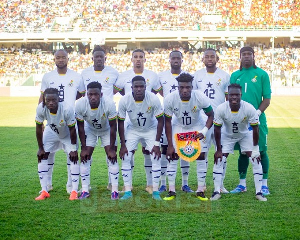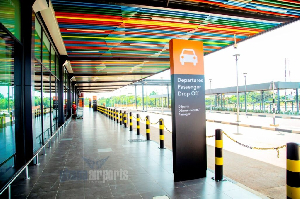Bolgatanga May 12, GNA - The National Health Insurance Scheme (NHIS) would take off in June in all the Municipalities and Districts of the Upper East Region.
Officials of the NHIS, District Assemblies and the Regional Coordinating Council (RCC) arrived at this decision at a meeting in Bolgatanga on Wednesday.
They indicated that even though stakeholders of the Scheme's implementation in the region were not fully prepared in terms of money and logistics, they would find ways to carry on once the Scheme took off.
It was estimated that each District would need an average amount of about 130 million cedis as initial capital and that they could negotiate with their banks to borrow the money. Mr. Bonface Gambilla, Regional Minister, said considering the poverty levels of the people in the area, it was imperative for the Assemblies to make health a paramount priority.
Mr. Gambilla directed that all Consultants working with the NHIS in the region suspend their services until their roles were clearly worked out and streamlined for all to understand.
This he explained was because their existence was not known to the coordinating Council nor did the Assemblies and the NHIS offices in the region know exactly what they were doing.
The scheme had so far registered between 3.5 and 13.1 per cent of the population in the various districts, with Bolgatanga, Bawku East, and Bongo covering not more than 13.1 per cent, while Bulisa, Bawku West, and Kassena Nankana registered less than four per cent of the population.
In the Bolgatanga Municipality, 15,000 people had been registered with 600 making full payments and the others partial payments, all amounting to 45 million cedis.
Bawku East Municipality registered 14,000 people with an amount of 56.3million cedis while Kassena Nankana district registered 9,604 people and collected 73million cedis.
Bongo district registered 14,100 people and mobilsed 20 million cedis, whilst Bawku West had 8 million cedis with 3,240 registered and Bulisa, 21 million cedis with 7,000 registered people.
Apart from the Kassena Nankana District, all the NHIS officers said the seed capital given them for the initial preparation was finished or almost finished and they were looking up to the Assemblies for help. They called on all workers in the formal sector to show interest and register in order to get a card since paying through the Social Security and National Insurance Trust (SSNIT) was no guarantee that one was a beneficiary.
They urged men in the formal sector to pay for their wives who were not contributing through SSNIT.
The NHIS requires all who contribute to SSNIT to give two-and-half percent of their contributions to the scheme, while those in the informal sector contribute at least 72,000 cedis per year. The scheme was meant to replace the 'Cash and Carry' system and make health services affordable to all.
Regional News of Thursday, 12 May 2005
Source: GNA
















